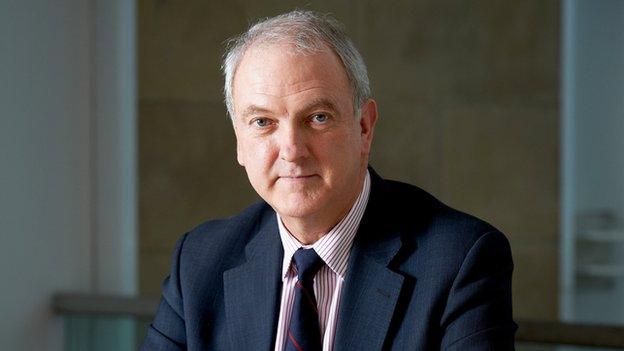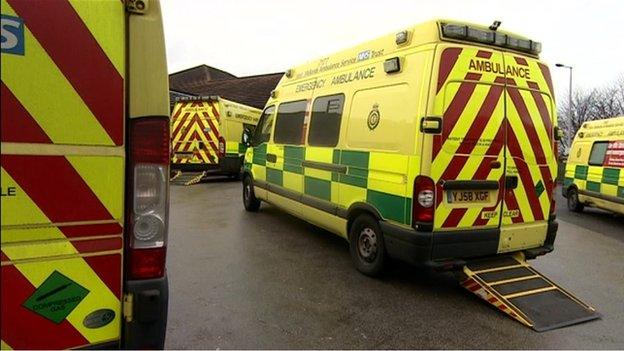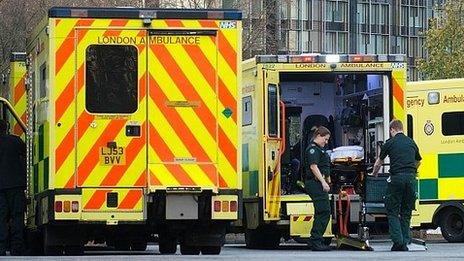A&E units 'creaking under pressure'
- Published

Sir Bruce says forward planning should mean services cope better with the spike in demand this winter
The medical director of NHS England says the "system is creaking" as winter begins to take hold.
Sir Bruce Keogh says ambulance services in some parts of the country are struggling and A&E units are stretched.
But he insists that forward planning and the injection of extra funding should help the NHS cope better than in previous winters.
The government has released an extra £300m bringing the total winter pot to £700m - 75% more than last year.
Sir Bruce made the comments at a conference at the King's Fund.
Speaking at the same meeting, Dr Clifford Mann, president of the College of Emergency Medicine, said that the system was facing huge demand pressures but was "working pretty well".
It comes as Gloucestershire's Hospitals Trust has declared a major incident, faced with no beds to fit up to sixty patients.
People are being told to only go to A&E if they have no other option - with services stretched.
Overload

Dr Mann raised the possibility that the NHS 111 helpline could be adding to the pressures on A&Es.
NHS 111 was launched in England in March 2013 as its predecessor NHS Direct was decommissioned.
It had a difficult start and was not immediately operational across the country. Scotland launched its 111 service in May this year.
The service was designed to help people who wanted medical help rapidly but not a 999 emergency response.
It is staffed by trained advisers backed up by experienced nurses and paramedics. Patients are directed, as appropriate, to accident and emergency centres, out-of-hours GPs, community health facilities or an ambulance.
Dr Mann said he had no criticism of NHS 111 staff but he had reservations about the methods for questioning patients to ascertain their condition.
He argued that the systems for trying to solve the problems (known as algorithms) too often led to operators directing patients to A&E or calling ambulances on their behalf.
Because the achievement of full national coverage by 111 had been slow, Dr Mann said the extra demand was only now becoming apparent.
The comments on the state of the NHS this winter came as ambulance services warned they were seeing unexpectedly high levels of demand.
The London Ambulance Service said the week beginning Monday, 8 December had been its busiest ever with a near 15% increase in serious cases compared with the previous year and it was seeking support from other ambulance services.
Director of operations Jason Killens said: "We have introduced a range of measures to help manage demand, including not sending an ambulance to more callers with less serious injuries and illnesses and instead giving them additional telephone advice or referring them to NHS 111."
- Published16 December 2014

- Published14 December 2014
